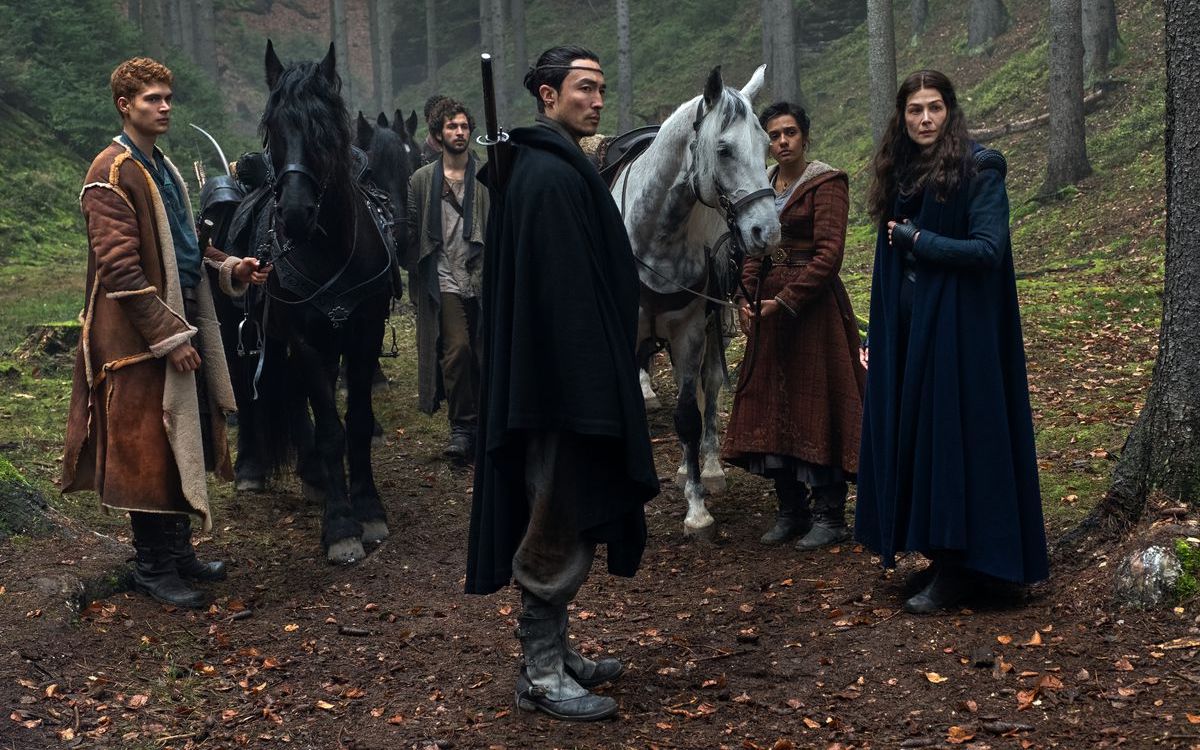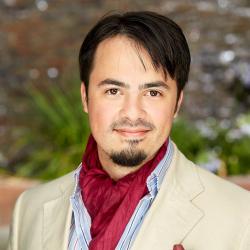The Wheel of Time is a series of 14 novels by Robert Jordan, which debuted in 1990. You may never have heard of them, but they’ve sold 100 million copies and add up to more than 4 million words. (The Bible is well short of 1 million.) The books are slowly being adapted for TV: it began streaming on Amazon in 2021, and its second season has just started, to be followed by a third, having already been renewed. It’s one of the rare successes in the post–Game of Thrones scramble to create fantasy series.
Since it’s a hit, and since a generation has passed between publication and screen adaptation, we should try to understand how fantasy and popularity have changed the epic’s character. For his part, Jordan wanted to restore in his novels something of the high ambition of Tolkien, and even took up Tolkien’s problem—to connect the Christian idea of the struggle between good and evil defining the conscience to the pre-Christian world defined by magic and tragedy.
Tolkien built upon Norse mythology, finding a kind of heroic suffering there that could be interpreted as preparation for Christian sacrifice, perhaps because of the warlike orientation to Ragnarok, a world-ending battle. Jordan turned to the Eastern idea of cyclical time, hence the wheel, perhaps because the idea of reincarnation is the closest thing to an immortal soul in the popular imagination, distinctly not martial but oriented to enduring. We live in a society where people are bored of the Last Judgment, but karma is in common parlance.
The Wheel of Time mixes the two ideas, good and evil and cyclical time, by bringing back yet another very old idea, repetitive cataclysms that wipe out civilization but not mankind. Every 3,000 years, a confrontation with a diabolic antagonist comes when a uniquely powerful magician is born; Jordan’s innovation is to split male and female magicians, the sign of nature’s reproductive power, and set them at odds. The “dragon” figure, possibly salvific, possibly damning, is always a male and hence unpredictable, chaotic; the major use of magic, however, is female—cooperative and in a way passive, hence fit to be institutionalized.
The novels deal with such a world-ending conflict and a young man, a new “dragon,” leading civilization to a saving battle, to imprison the diabolic antagonist more safely, though not permanently. Jordan, following Tolkien’s lead, decided that such a story requires an English prose recalling an older, more aristocratic, certainly premodern world, something that reminds readers that we aspire to be admirable. The noble language was supposed also to convince readers that they were reading a story that can teach wisdom, not merely entertain.
The Amazon TV series keeps that structure but substitutes for Jordan’s long novels a much faster-paced, action-packed story, in eight hour-long-episode seasons. It also adapts the dialogue and characterization to the demands of Progress, with the college-brochure racial and gender casting that gets one part of respectable America to say it’s no big deal while the other part claims another victory for diversity, inclusion, and equity. This corresponds to a social change. Jordan became successful, so to speak, by accident, because readers loved the stories; the Amazon series starts with all that prestige TV now boasts of, and therefore seeks to impose its morality on viewers.
The genre should probably be called thriller, given the repetitive slaughters—young protagonists hunted down by devilish antagonists in a medieval setting, like Lord of the Rings—but it has strong elements of soap opera, too. The characters struggle to affirm their individuality against the demands of the plot, as is now typical of young adults in entertainment. The “dragon,” his three friends, and the other youths they meet in their many adventures spend much of their time complaining about and mistrusting each other, threatening abandonment and throwing tantrums. This is the pious ritual by which we now define young Americans: they’re sensitive, hence irritable.
So The Wheel of Time could be said to be postmodern: it’s about growing up in a situation where apprehension of danger undermines authority in the eyes of youths who didn’t like authority in the first place. The four grow up in a shire-like village, but once it’s attacked by orc-like monsters, they start running and cannot stop until the last battle. Rand, the protagonist, played by Josha Stradowski, has to mistrust himself, too, since his unique powers are tied to a previous destruction of civilization. His friends Mat, Perrin, and Egwene are more often at the mercy of various leaders of cities, cults, invading armies, and, of course, monsters. Is weakness or power the worst thing for the young to deal with?
Instead of Gandalf, they have a witch for a guide, Moiraine, portrayed very well by Rosamund Pike, of Gone Girl and Pride and Prejudice fame, who gives the story its anchor. She’s a powerful member of the Aes Sedai (“servants of all”), a female organization enforcing a monopoly on the use of magic among civilized people. They especially imprison male users who, because of the previous “dragon,” go mad with power. That’s unintentionally a helpful vision of our matriarchal tendencies today and the way we drug boys, and it fits the overall mood of the story, which is decadence. These young people are inheritors of many wrecks and few prospects.
Rand and his friends, together and separate, go from one impressive city to another, past and present greatness, some doomed or cursed, others on the brink, none up to the civilizational crisis ahead. This examination is supposed to bring up the question of moral seriousness and force it upon individuals in terms of good and evil, here servants of the light, in one interpretation or another, or servants of the dark. But in the absence of either a doctrine or a way of life that animates people, there is a great vagueness about what it means to be good or what power is involved in goodness; it seems like being under attack by the dark forces is the primary evidence of goodness, at least for survivors. What great command do these youths follow?
Fantasy has changed both its character, in abandoning a somewhat moralistic attachment to romanticism and beauty, and its function, since it no longer shows us idealized versions of ourselves but, instead, people troublingly like ourselves, unconstrained by bureaucracy, nor protected by the state that bureaucrats manage. At its best, The Wheel of Time surveys our moral decadence, because in removing us from our habits, it reveals unseriousness. But it often does this by feeding the defining modern taste for sentimentality and brutality. There have been complaints that the spirit of the novels was betrayed by this attitude in adaptation, and there’s a lot of truth to that. These are ugly rather than noble stories, but this is the taste of our times.
The Wheel of Time so far has forced its protagonists to face the collapse of their way of life and is now sending them to find the factions they must eventually lead into battle, mastering their powers in the process. Its quick pace rewards love of novelty, but also offers the suggestion that these youths will prove that their irritability is a sign of preferring the better to the worse that issues in great self-demand, which is what makes leaders. But that would make them unlike our society, and therefore fantastic, objects of imagination. It remains to be seen whether fantasy as criticism of decadence moves audiences or turns into yet another consumer culture, with fans and detractors, remaining merely entertainment.

